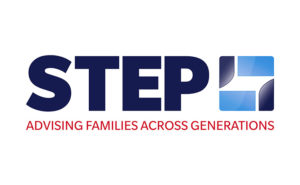Estate planning and inheritance tax planning involves a full, comprehensive review of your circumstances, needs, concerns, and those of your family.
Understanding where you are coming from and where you want to go is essential to the process – enabling us to identify potential issues and offer practical and legal solutions to address them.
Inheritance tax planning and mitigation is at the heart of our estate planning services. We help you arrange your affairs in the most tax-efficient way whilst not losing sight of your goals. Wills, Trusts, and Powers of Attorney are simply tools we use to facilitate sound, considered and practical planning.
We are used to working with other professionals (whether in other Ashtons Legal teams or external advisers) and recommend joint meetings to help you reduce duplication and to get the best out of your professional advisers.
Our Inheritance Tax Planning Solicitors Can Help With
- Inheritance tax planning and mitigation: helping you arrange your affairs tax efficiently
- Asset protection: protecting your assets for you and your family
- Succession planning: preparing bespoke Wills that work for you
- Business planning: working with commercial advisers to ensure your business interests and personal affairs work together
- Retirement planning: helping you plan for the future so you can get on and enjoy it.
Contact our expert inheritance tax planning solicitors today
To access inheritance tax planning support today, please contact our local offices in Bury St Edmunds, Cambridge, Ipswich, Leeds or Norwich.
Alternatively, please fill in our online enquiry form and a member of our team will be in touch shortly.
Estate Planning & Tax Planning Solicitors
- We provide a friendly, personal service that puts you first
- We work with you to deliver services in the way you want them, keeping you informed every step of the way
- We are clear upfront on the costs involved and offer pricing options to suit you
- We are genuinely interested in you because getting to know you enables us to provide a more valuable service
- We have a wealth of experience and expertise – our team comprises members of the Society of Trust & Estate Practitioners (STEP), the Association of Lifetime Lawyers, and the Chartered Institute of Taxation.
Our Inheritance Tax Planning Service
Inheritance tax planning & mitigation
Our specialist solicitors at Ashtons Legal can help clients with inheritance tax planning and mitigation in various ways. We can support clients to reduce tax liability using the following legal approaches and tools:
Trusts: There are various types of trusts which may be suitable for tax mitigation purposes. We can provide advice and help clients to set up and or manage trusts.
Lifetime Gifts: We can offer recommendations on lifetime gifts, supporting clients to use these for tax reduction, and explaining the rules regarding different types of gifts.
Tax Efficient Wills: Our Wills solicitors can support clients to draft tax efficient Wills, as well as providing advice on inheritance tax exemptions that you may be eligible for.
Our inheritance tax planning solicitors can provide a wide range of estate and tax planning services. We have vast experience in this area of the law and have worked with a diverse range of families and individuals.
Asset protection
By utilising inheritance tax planning strategies, our expert solicitors will ensure that you protect your assets, ensuring that your family can benefit from your wealth as far as possible, when you are no longer here.
We understand that many clients are concerned about safeguarding their assets. Rest assured; we are highly experienced in complex asset protection. When you work with us, you’ll receive the honest and professional guidance that you need, helping you to secure the best options for you and your family.
To access tailor-made inheritance tax planning advice today, please get in touch with our tax planning solicitors.
Succession planning
With the help of succession planning, you can organise how your wealth will be passed on, ensuring that these plans reflect your wishes, and are fitting for tax reduction purposes.
These are not decisions that should be made lightly, and as such, it is paramount that you receive support from experienced experts, such as our team at Ashtons.
To discuss our succession planning services, including bespoke Wills and or business succession planning, please get in touch with our expert inheritance tax planning solicitors.
Business planning
If you’re a business owner, it’s important that you receive legally sound business planning advice, allowing you to mitigate your tax liability, and preserve the value of your company, as far as possible.
At Ashtons Legal, our inheritance tax solicitors have much experience working with company owners, supporting them with various areas of business planning, to include:
- Providing advice and guidance on the legal structure that’s most appropriate for business succession
- Creating trusts to safeguard your business assets
- Recommendations on any business relief or reductions that your company might be eligible for
We understand that every business is different, which is why we provide a bespoke service, based on your company and your key commercial goals.
Retirement planning
Our specialist solicitors can provide various types of support to help clients with retirement planning. Our inheritance tax lawyers can help you with matters such as:
- Creating trusts to benefit you throughout retirement, and to support your beneficiaries when you have passed on
- Bespoke estate planning services, making certain that your estate is as tax efficient as possible
- Support with pension planning, to ensure the highest value passes to your loved ones
No matter how complex your needs, we can provide outstanding support, to help you plan your perfect retirement.
Frequently asked questions
When do you pay inheritance tax?
Inheritance tax is payable on a person’s estate after they have passed away. It is usually the task of the Will executor to value the deceased’s estate and ensure that the inheritance tax return is completed and any tax owed is paid.
The Will executor will need to ensure that the inheritance tax is paid within 6 months of the death date, otherwise the tax payable will incur interest.
It is advisable to complete an inheritance tax return and pay inheritance tax as soon as possible.
What is the inheritance tax threshold?
You will need to pay inheritance tax where an estate exceeds the threshold of £325,000. You will only need to pay tax on the value that exceeds this threshold, which is charged at a rate of 40%. For people who own a property that passes to their children or grandchildren there is an additional tax allowance of £175,000 and some allowances can be transferred between married couples.
If you are unsure of your liabilities, and require inheritance tax advice, please do not hesitate to contact us.
Who pays inheritance tax on jointly owned property?
The person who is responsible for paying inheritance tax varies depending on the type of ownership.
For instance, if the property is owned as ‘joint tenants’, sole ownership of the property is transferred to the surviving owner. In these circumstances, the person inheriting the property may incur inheritance tax.
If the property is owned as ‘tenants in common’, when one property owner passes away, their share counts as part of the estate. Consequently, it may incur inheritance tax, depending on the terms of the Will.
To ensure that you understand your obligations it is advisable to seek the advice of an expert inheritance tax adviser.
How can a trust be used for inheritance tax planning?
Trusts can be incredibly useful for inheritance tax planning purposes. These can support individuals to minimise inheritance tax liability, and determine the way in which their assets will be distributed once they’ve passed away.
There are various types of trusts that are suitable for inheritance tax planning, including:
- Interest in possession trusts
- Bare trusts
- Discretionary trusts
If you would like assistance to create or manage a trust, for the purposes of inheritance tax planning, please do not hesitate to get in touch with our expert inheritance tax planning solicitors.
How do I avoid inheritance tax on my parents’ property?
If your parents have chosen to leave their home to you, you may well have some concerns about inheritance tax.
The good news is, when parents leave their property to their children, the tax free threshold increases by a further £175,000 to £500,000. This increased threshold provides many with the opportunity to significantly reduce inheritance tax on a parent’s property.
Parents also have the option to pass on a property that they are not using to their child as a gift, during their lifetime. So long as the parents survive for at least 7 years after giving the gift, the property should not incur any inheritance tax. In order to access this type of inheritance tax exemption, it is necessary that the parents do not continue to benefit from the property after gifting it to their child.
For more information about avoiding inheritance tax on a parents’ property, please contact us using the details below.
Speak to our inheritance tax planning solicitors today
For support with inheritance tax, please contact our local offices in Bury St Edmunds, Cambridge, Ipswich, Leeds or Norwich.
To speak to a member of our team today, please use the links below to get in touch.



